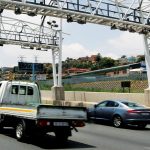A (sad) day in the life of a cross-border truck driver

Attacked and threatened by the people who should be protecting them, truck drivers in southern Africa are fearing for their lives
Truck drivers in southern Africa fear for their lives at some border posts, as they have become sitting ducks in the long queues and informal truck parks created to accommodate severe congestion at these border crossings.
In most cases, the congestion is a direct result of inefficiency at the border and complicated procedures implemented by border authorities to create organised chaos, and the opportunity for corrupt activities and crime, from which they benefit directly.
Kasumbalesa Border Post between Zambia and Katanga Province in the Democratic Republic of Congo (DRC) has been in the spotlight for these very reasons on a number of occasions over the last year.
There are many factors contributing to the situation there, which, at any one time, is congested with around 1 270 trucks per day on both sides of the border (as per the SSATP Truck Monitoring System).
There is insufficient parking on either side of the border to accommodate such volumes. Drivers are, therefore, forced to queue alongside the main road approaching the border posts.
On the Zambian side, this queue often extends back as far as Chililibombwe – some 20 km away from the border – and on the DRC side it extends another ten to 15 km back from the border past Whiski Dry Port.
This leaves truck drivers in a very vulnerable position with no security, no ablution facilities and no clean running water. As a result, they have become victims of armed attacks and robbery on the DRC side – more recently from armed government personnel, who have taken to threatening drivers with firearms, smashing cab windows and looting their trucks of all their personal possessions.
Personal messages and videos have been sent to me on WhatsApp at Fesarta by drivers pleading for help and assistance. This what some of the drivers had to say:
“We have been stuck here for six days at Kisanga customs parking in Lubumbashi because of the attacks,” said one driver. He said several trucks had been attacked the night before while in the queue at the border post.
Drivers, he said, were fearing for their lives. “We can’t move from here, because we cannot risk ourselves by going to the border queue, because the trucks are being attacked by soldiers. They have guns and they will kill you,” said one driver.
Trucks are mandated by the DRC Customs Authority (OFIDA) to wait in the Kisanga Truck Park, near the toll plaza in Lubumbashi, until there is sufficient space at the border to accommodate them. It takes an average of two to three days (due to the congestion at Kasumbalesa) before they even get to the actual 15-km border queue, meaning it takes days on end to move through this border post between the DRC and Zambia.
Drivers say this was not the first incident of its kind and the situation has been ongoing for over a year now.
One driver said: “This has been happening for a long time, but it has always been reported as if it is just thieves, but it is not. It is the DRC soldiers in uniforms with guns. The police say they can’t do anything as they are scared of the soldiers.”
One of the drivers said soldiers demanded money and any other personal belongings from drivers at gunpoint. “They break the truck windows and they just take everything. We are scared,” he said. “We are stuck; we don’t know what to do.”
Most of the drivers’ said money was the first thing taken by the soldiers, which included their own money to buy food and other amenities, or the cash given to them by companies for fees and levies to customs. “But they will take anything they can lay their hands on, your food, your clothes, bedding,” said one driver.
While safety is a primary concern for the drivers, the issue is far more complex, as shocking sanitary and health conditions exist, which could contribute to the outbreak of diseases such as cholera and dysentery.
“This is not a good thing. People are tired. They are sitting in their trucks waiting, not knowing when they are going to be attacked. Sometimes you sleep in that queue for four or five days, or even longer, but there are no toilets, no bathrooms and no water. Life is very difficult for a driver to survive. How can this carry on?” asked a driver.
The situation at Kasumbalesa is totally unacceptable and out of control and it seems that authorities are powerless to do anything about it – or are they? Maybe they are quite happy for the status quo to remain, as they are part of the problem and are benefiting personally from the situation…
Whatever the case might be, drivers fear for their lives. And the transport industry is bleeding at the hands of bureaucracy; it has become the cash cow for governments and border-post authorities.
Published by
Mike Fitzmaurice
focusmagsa




